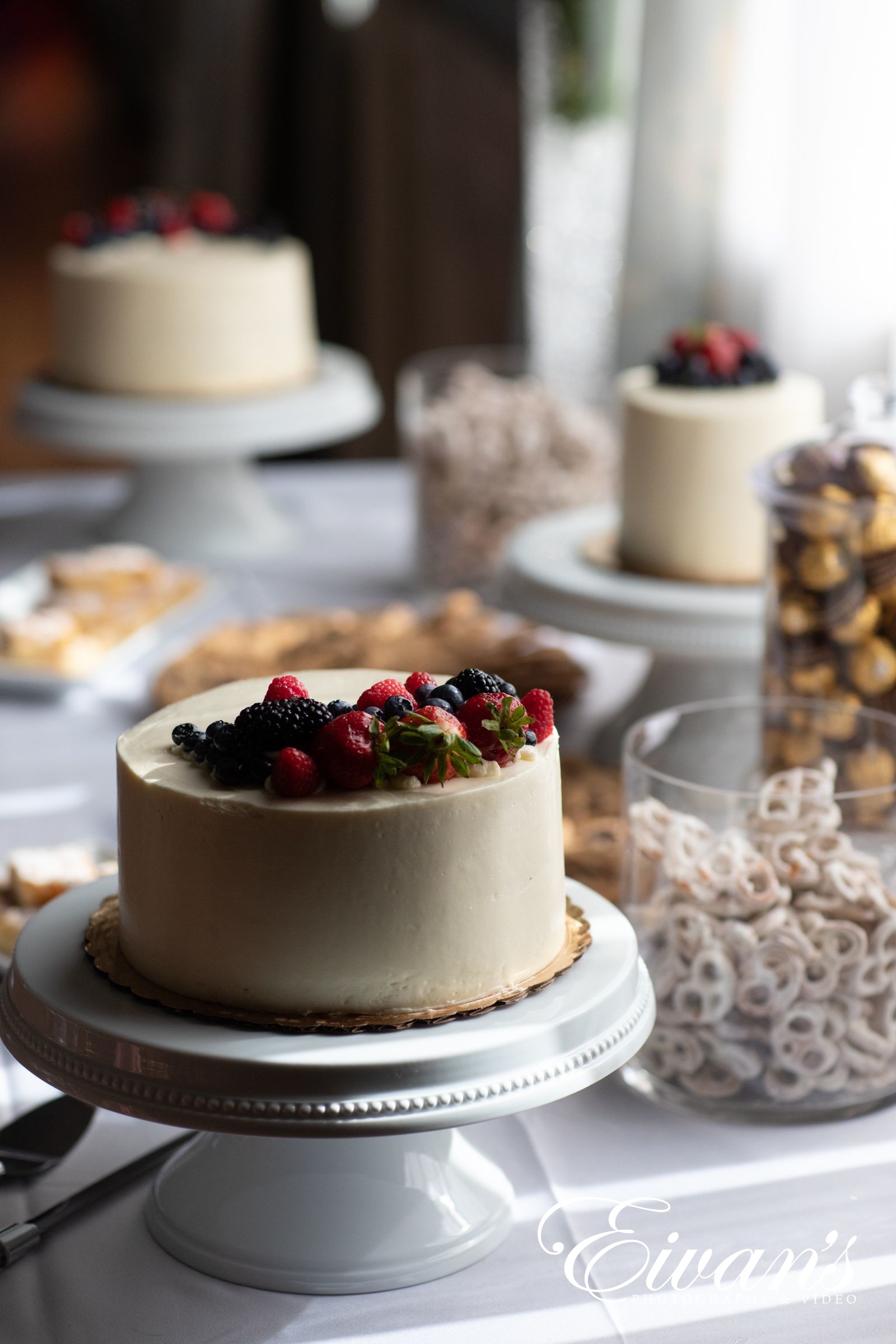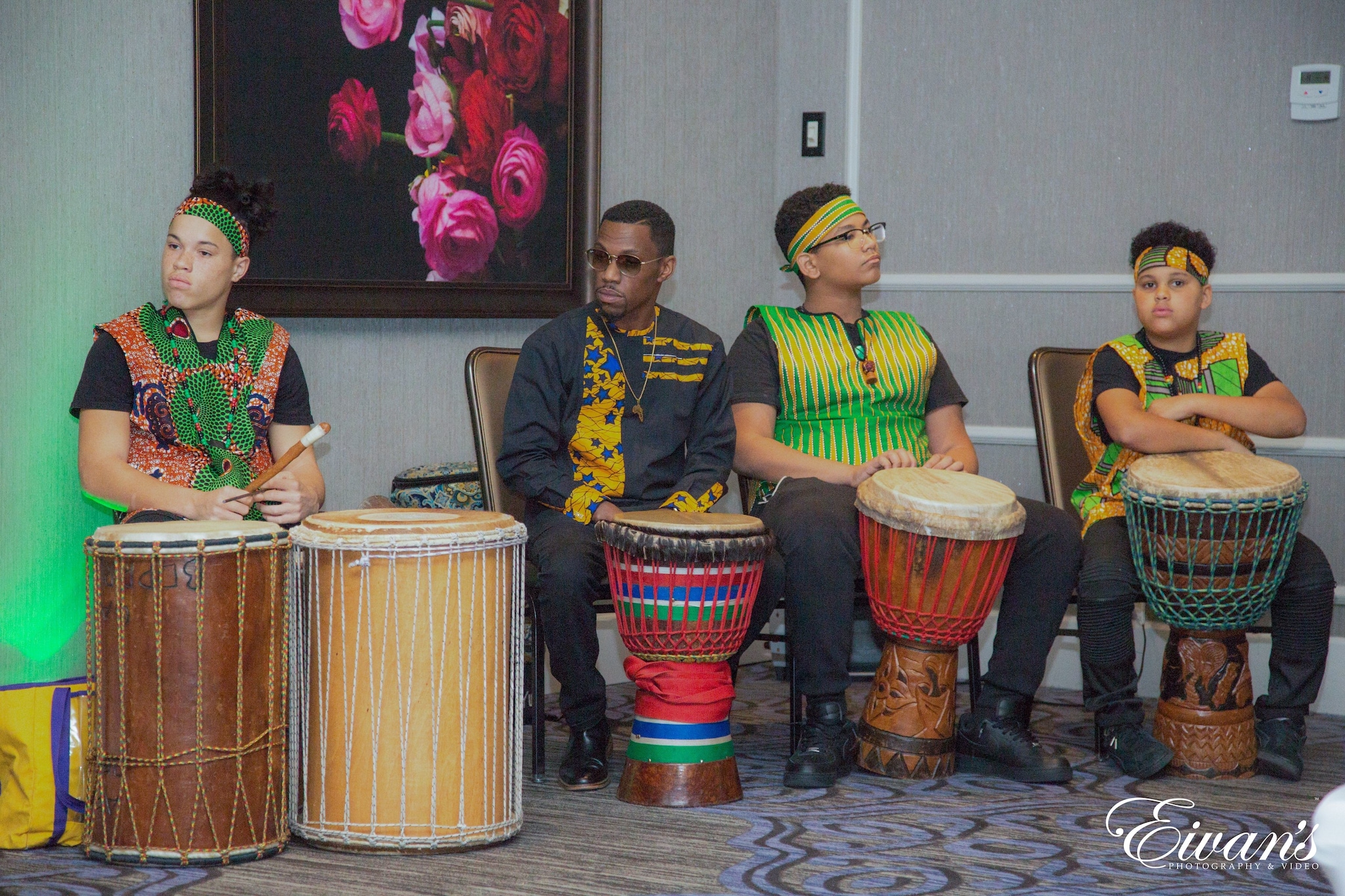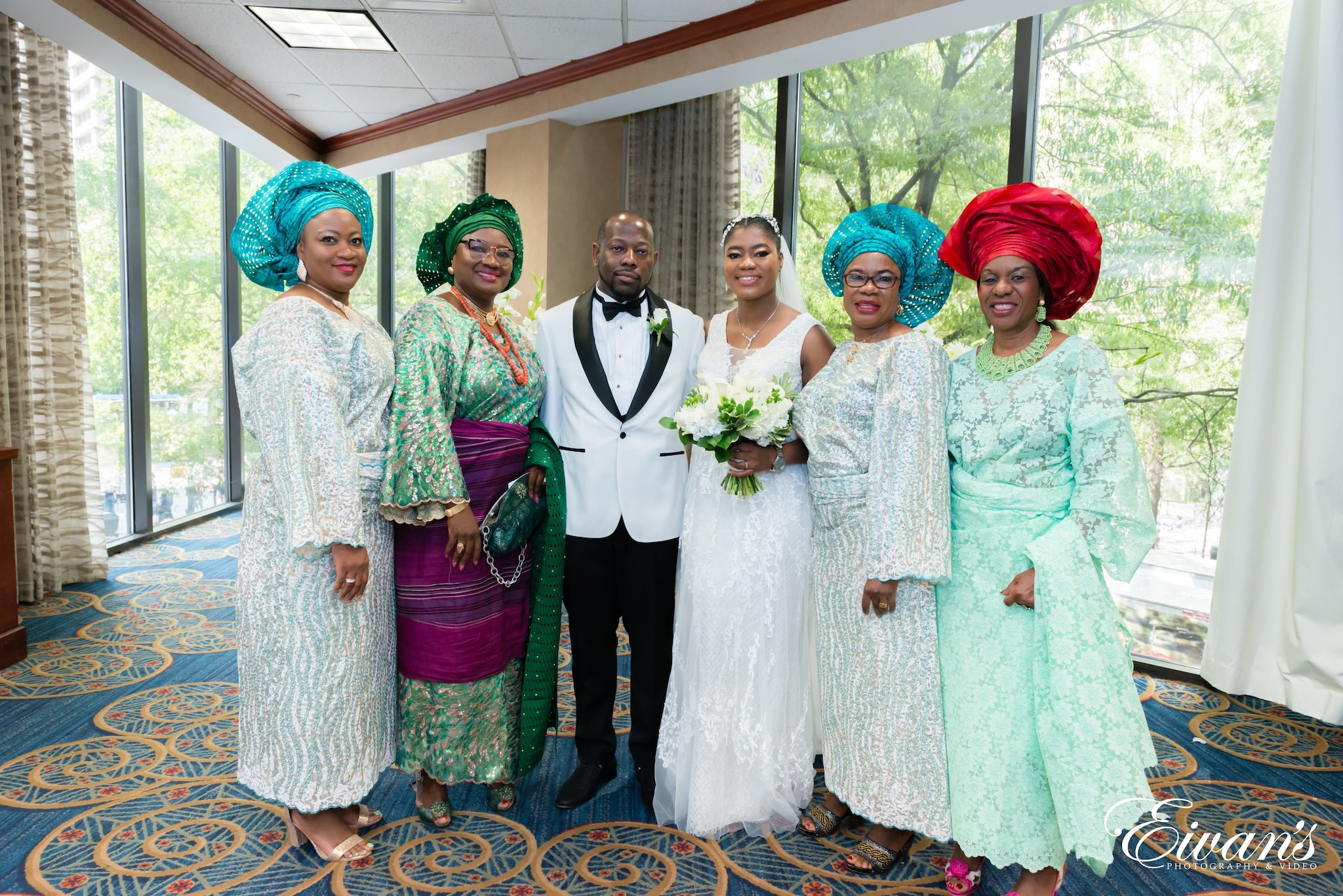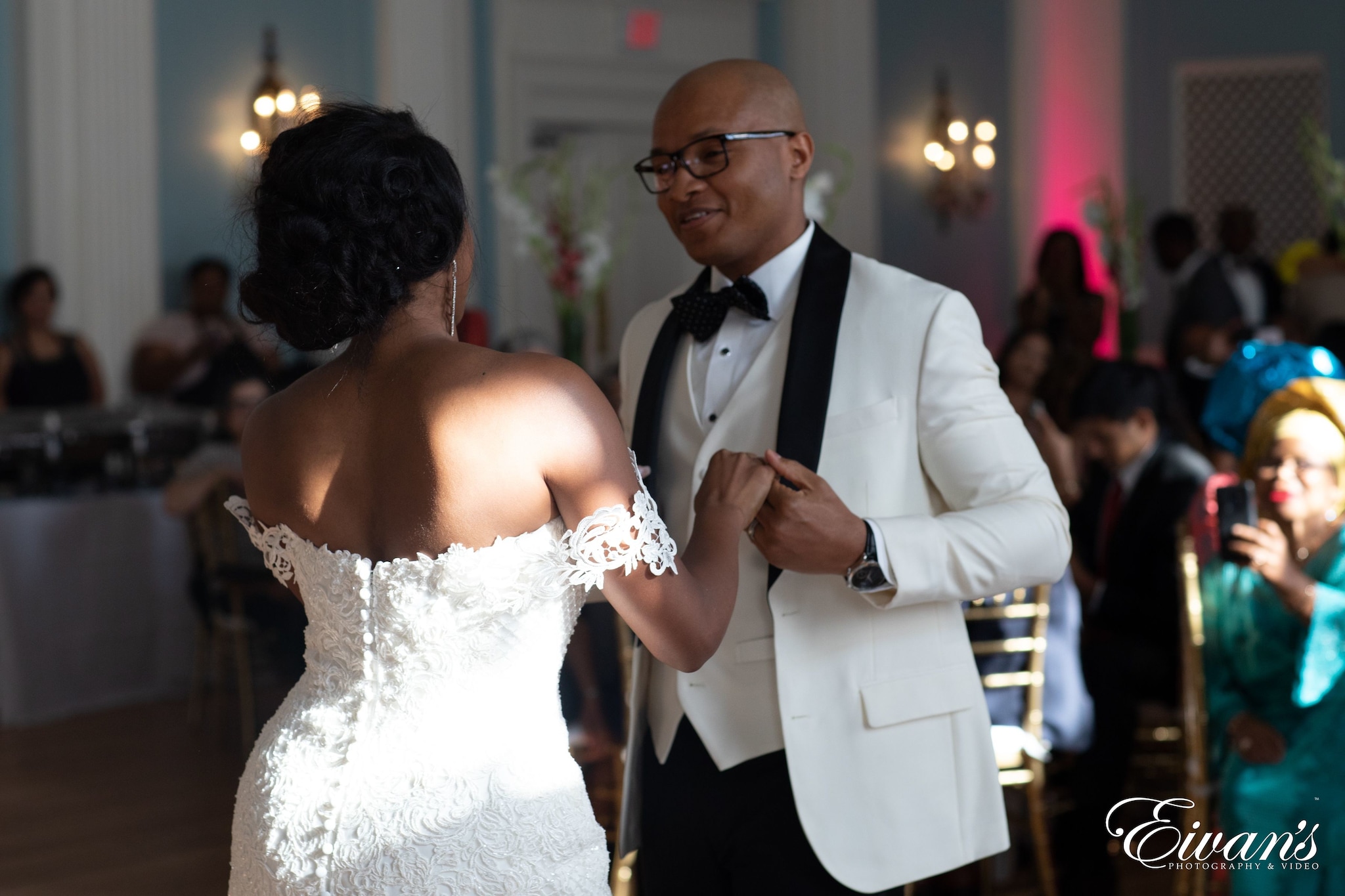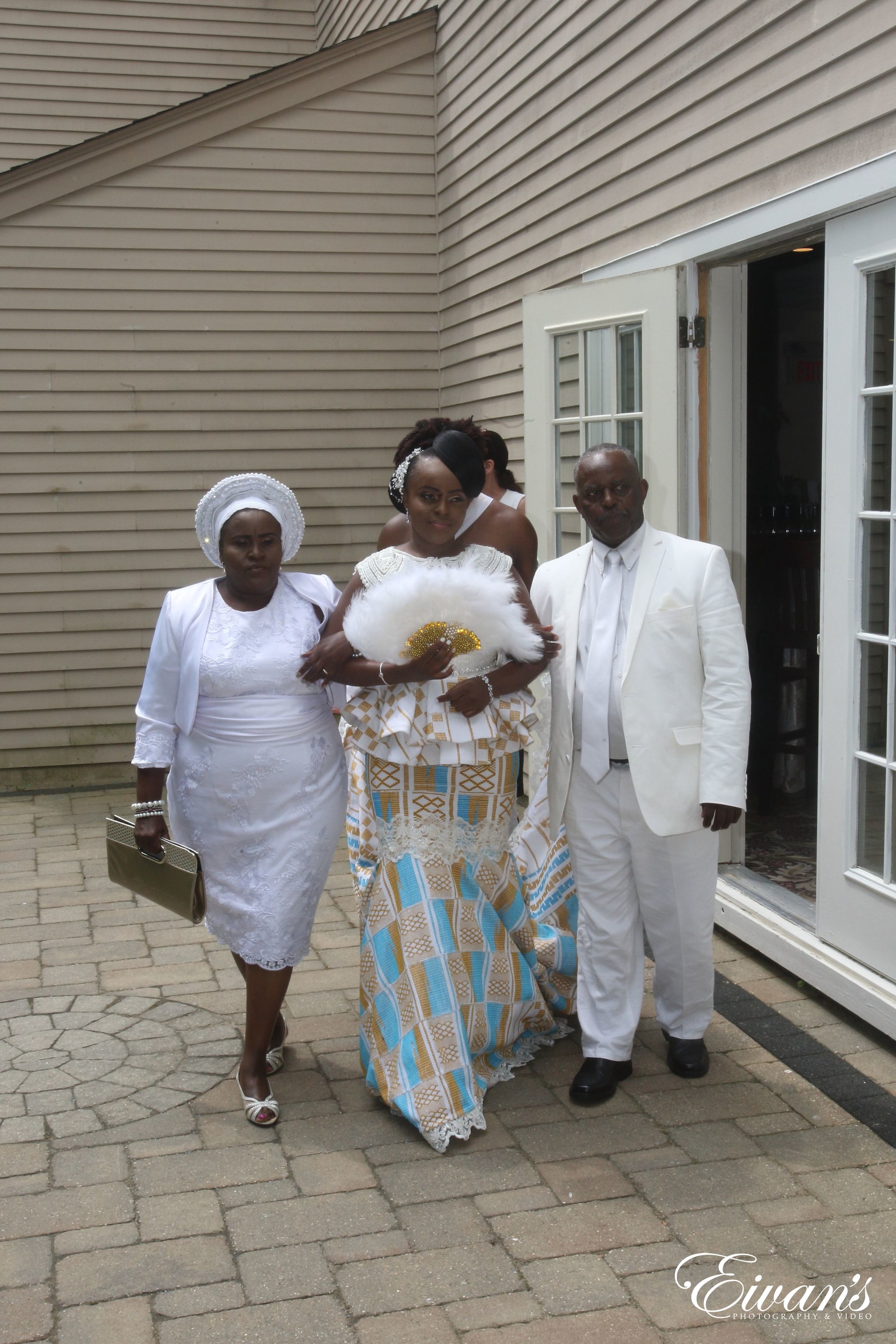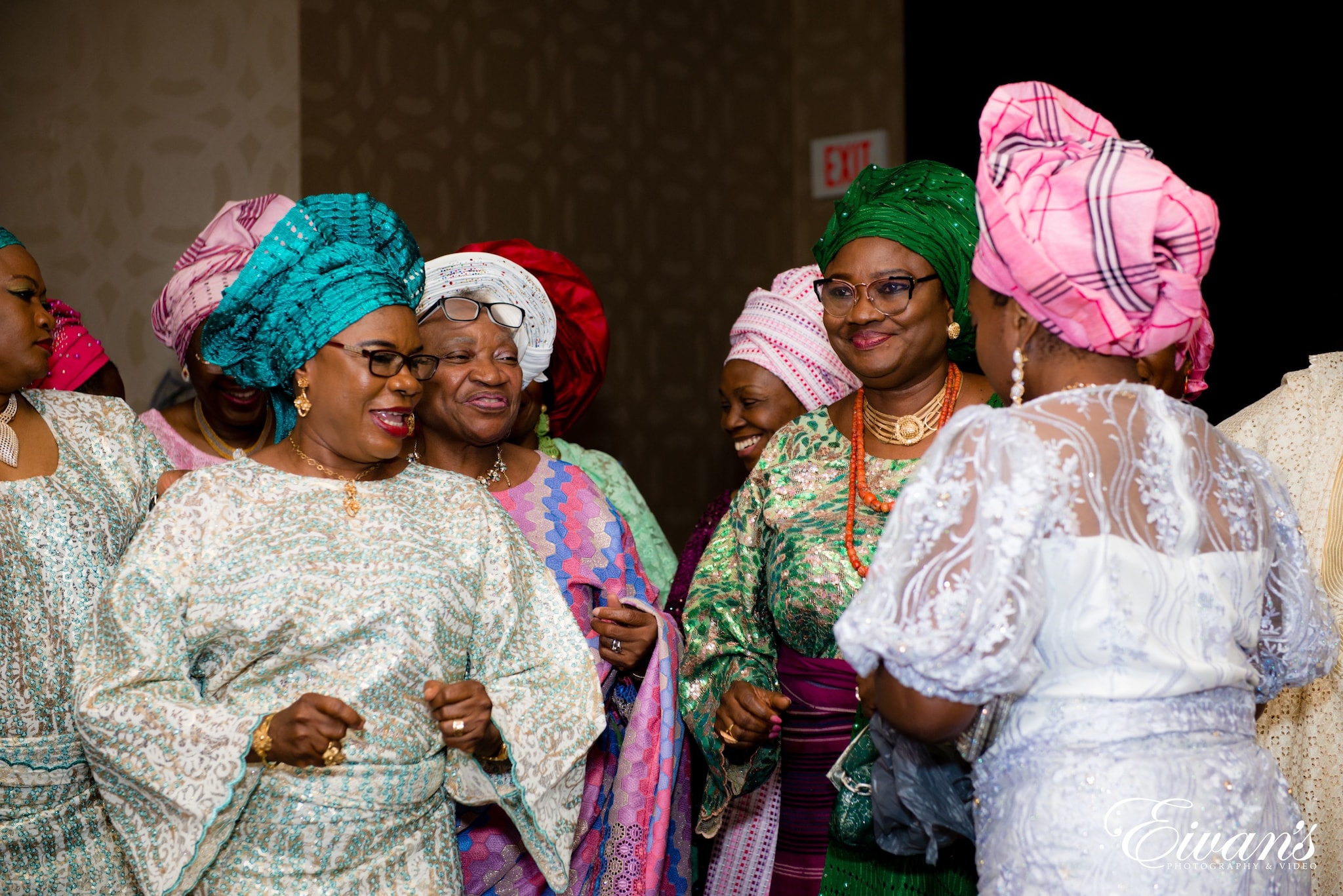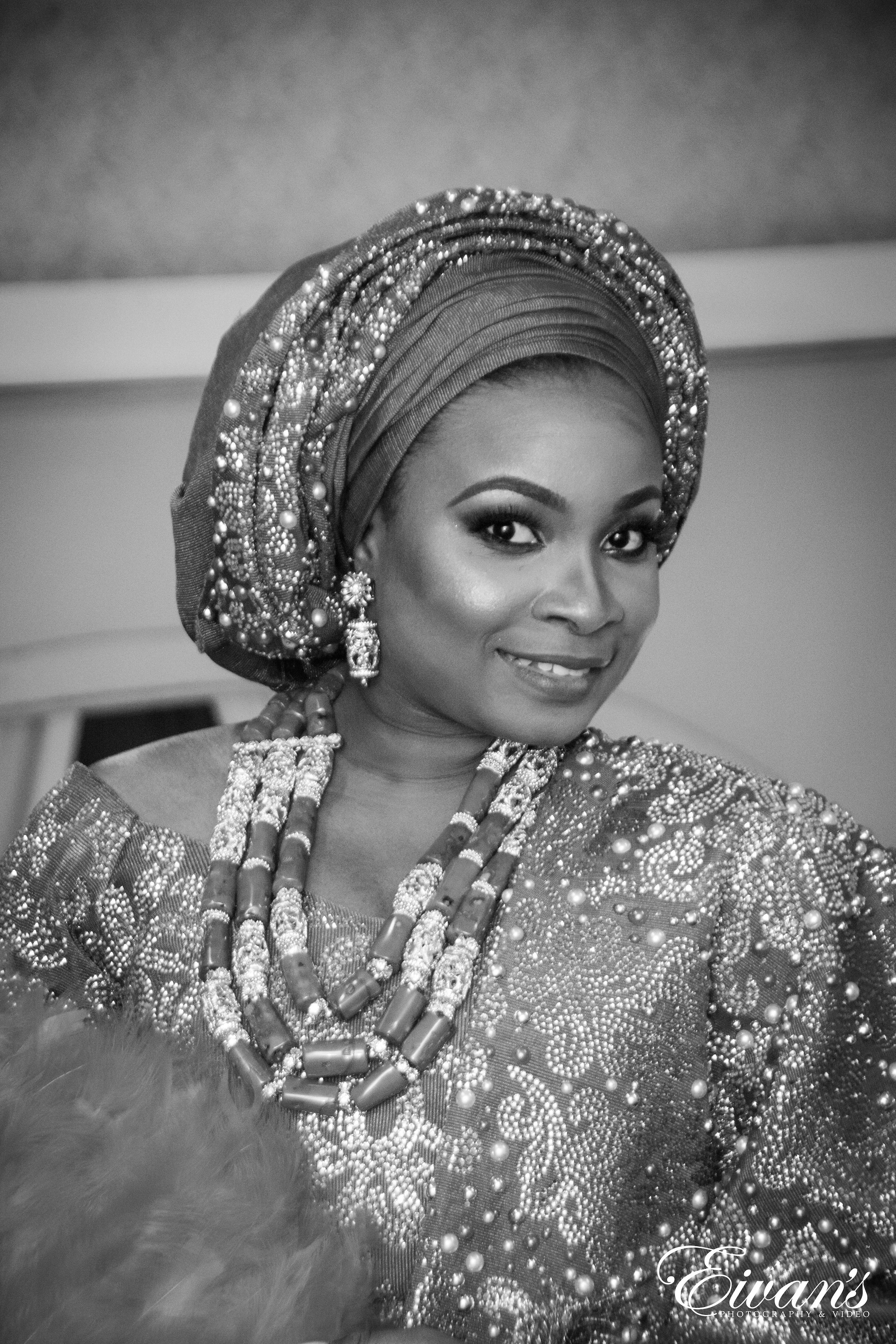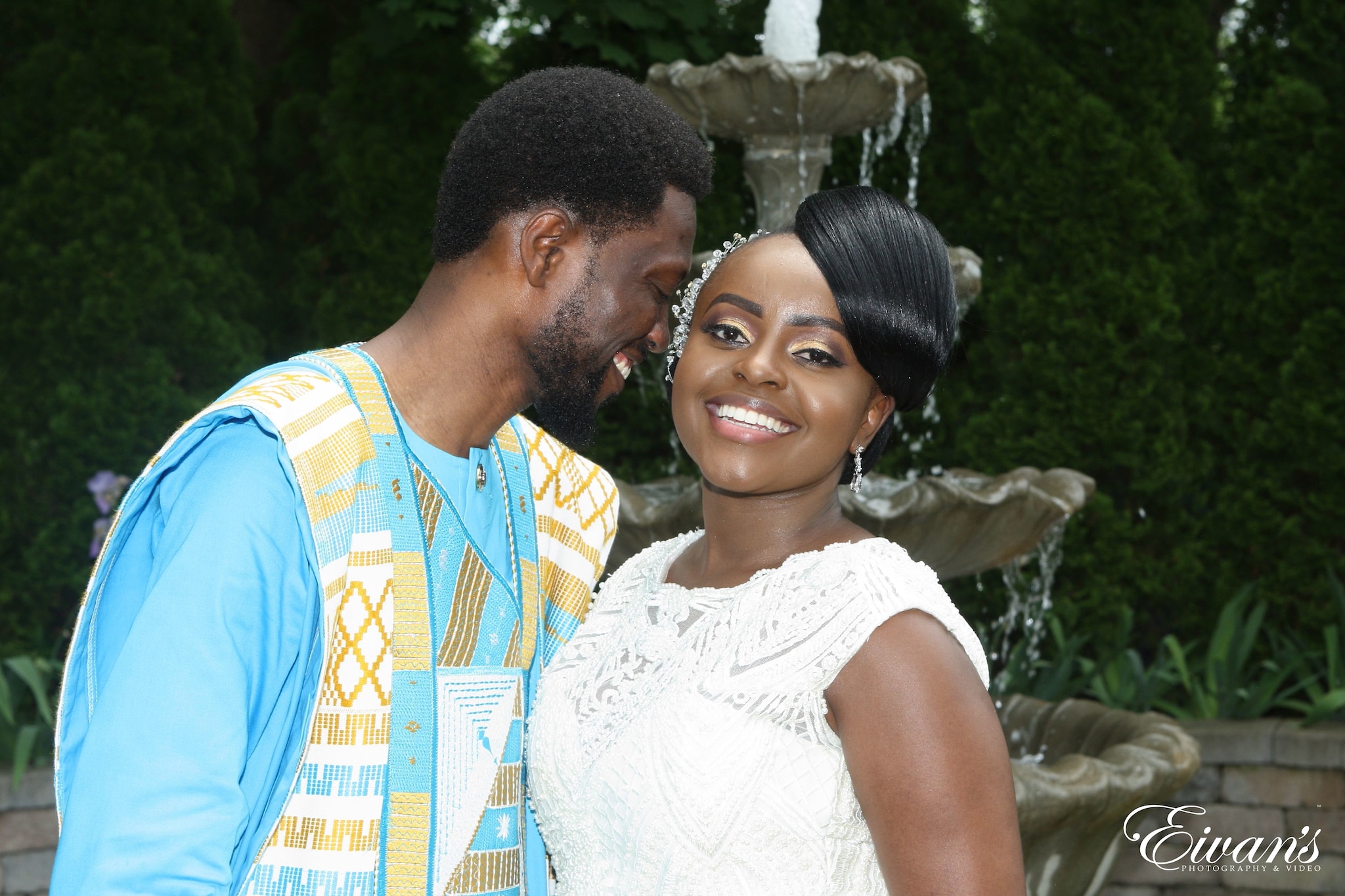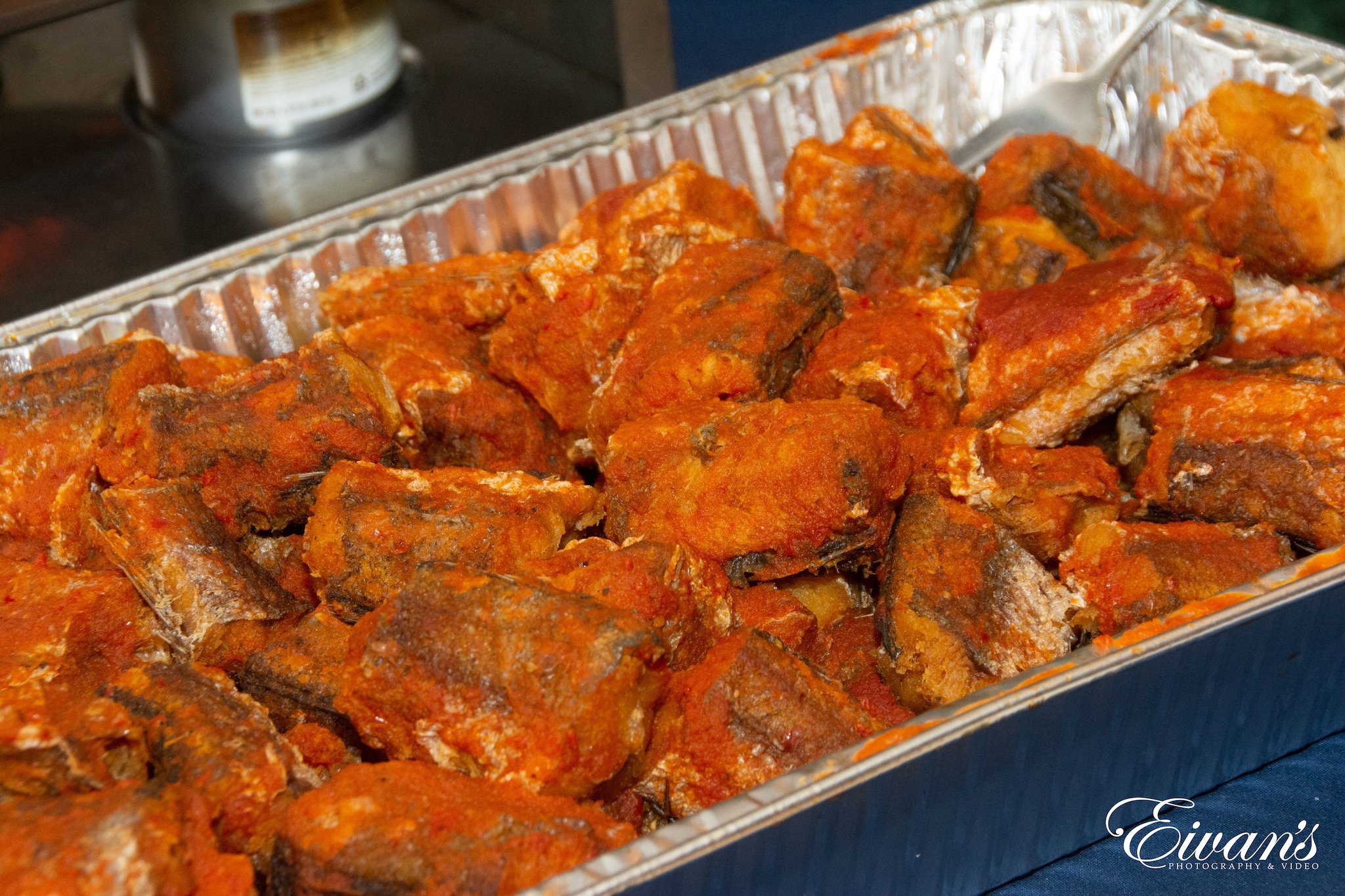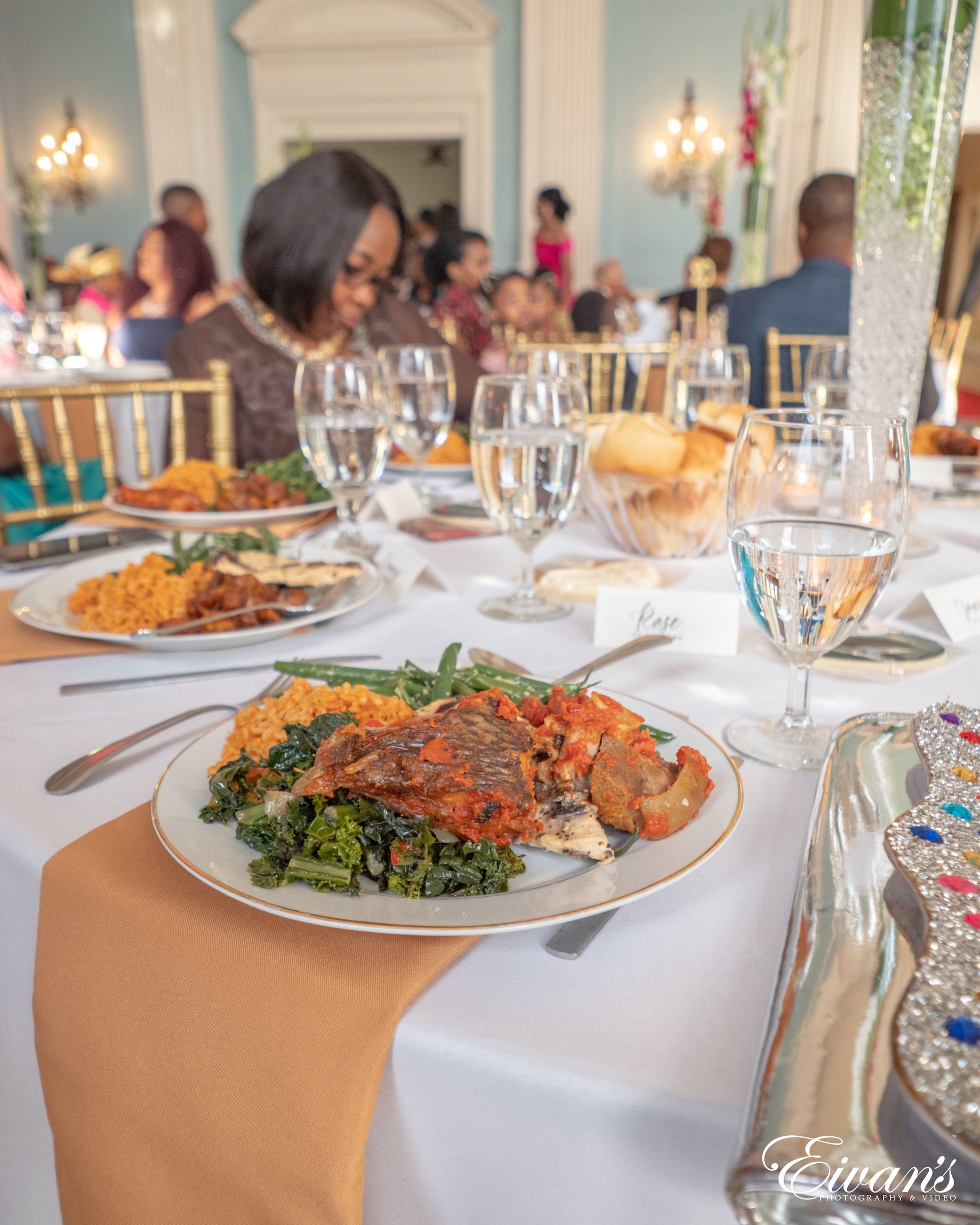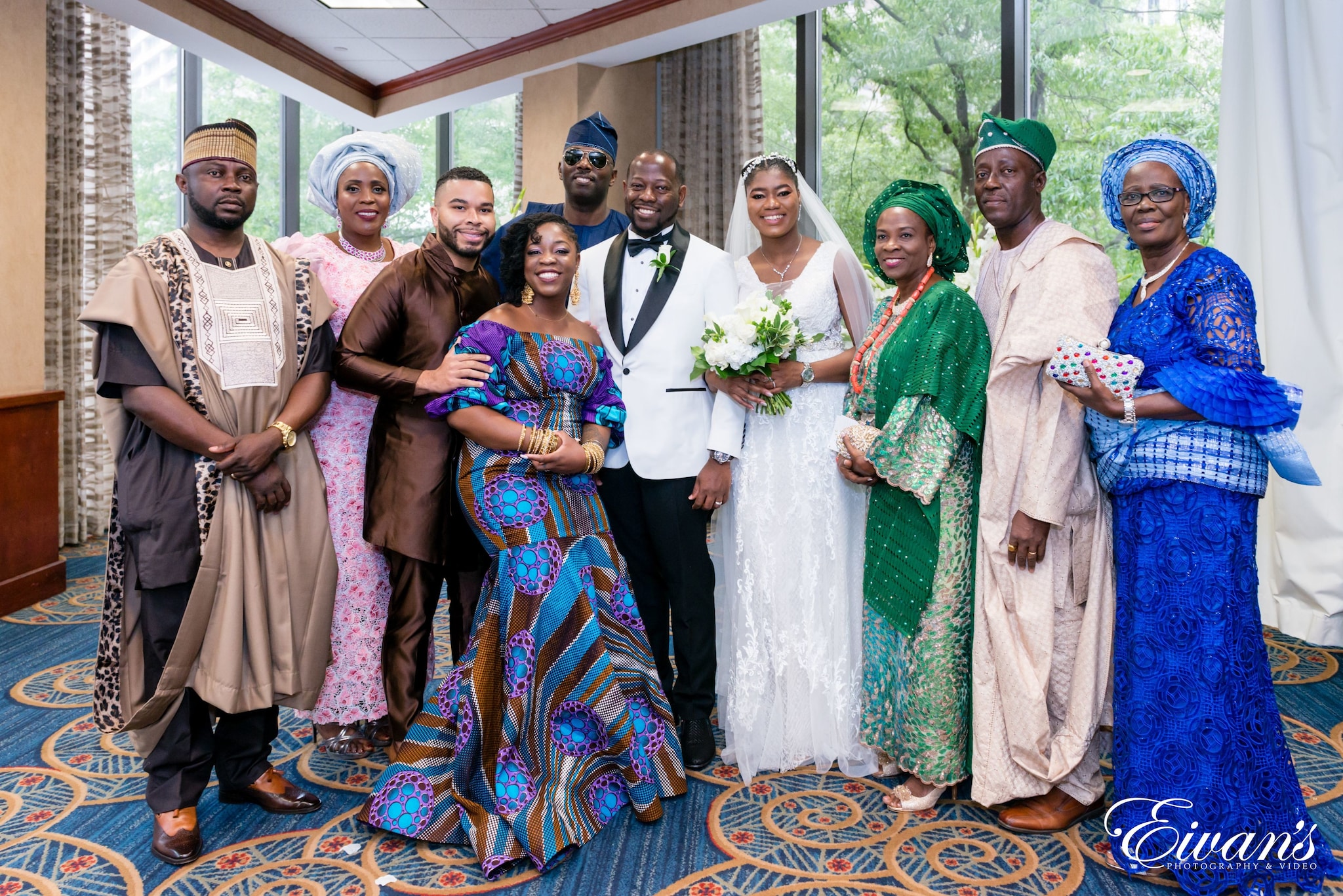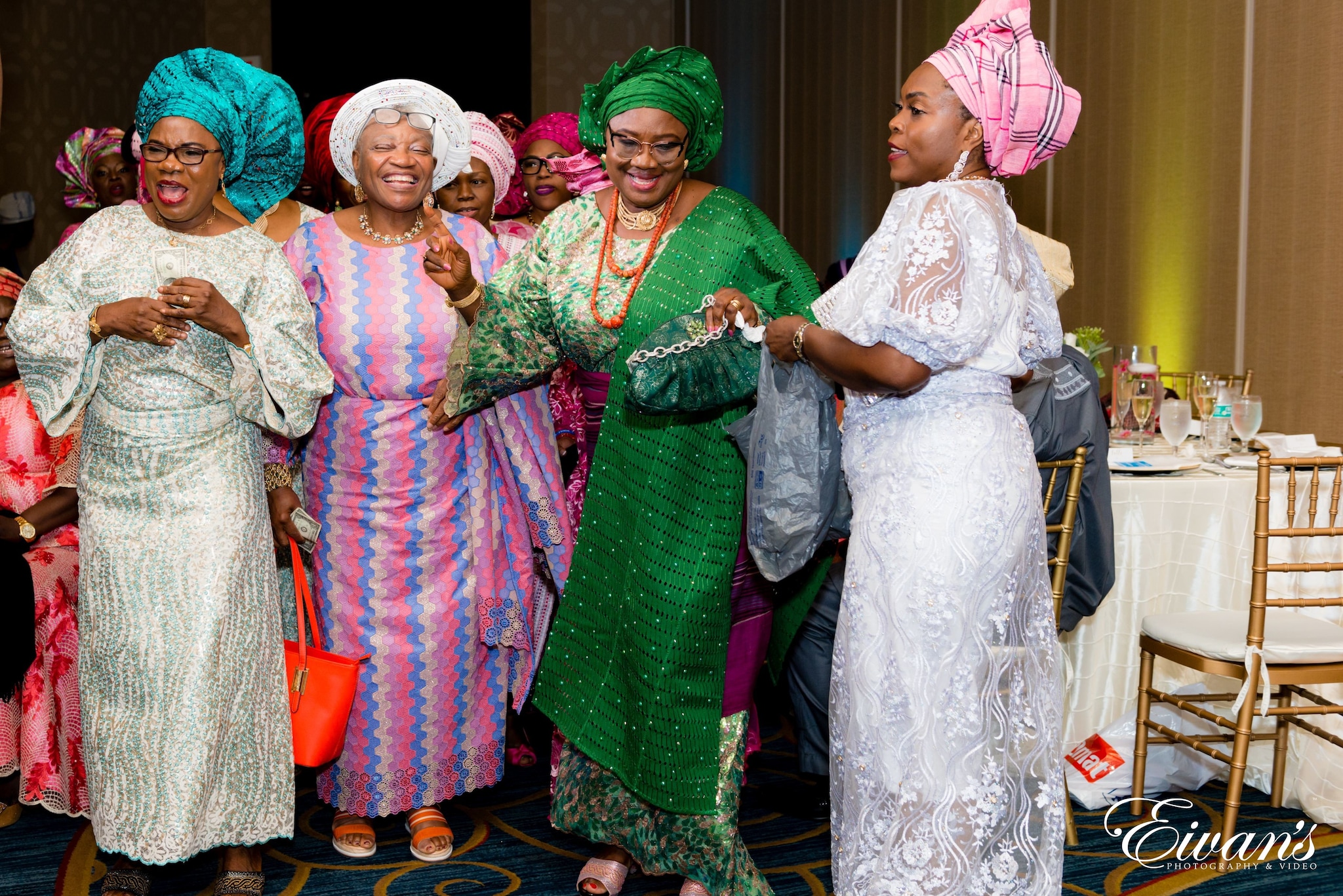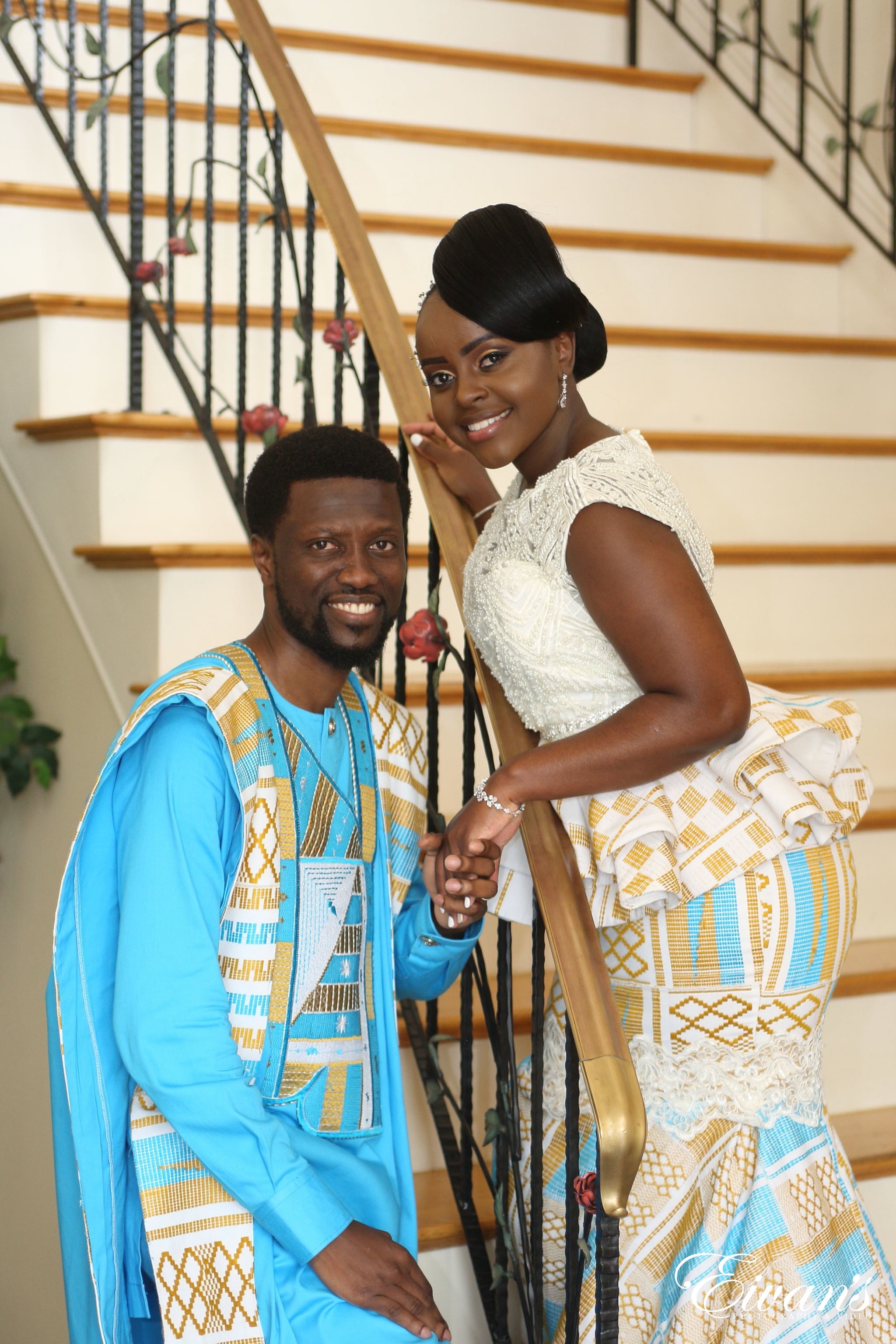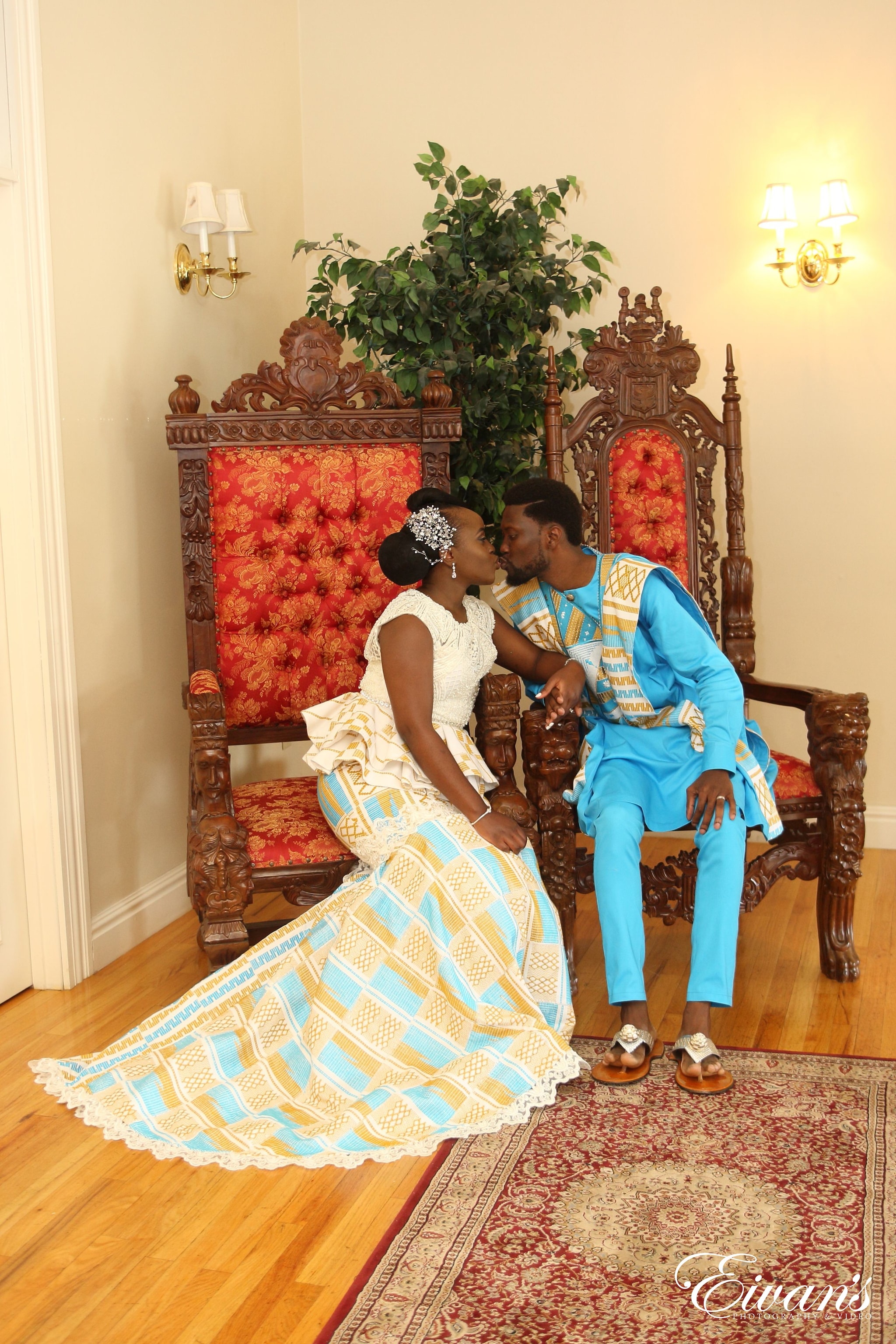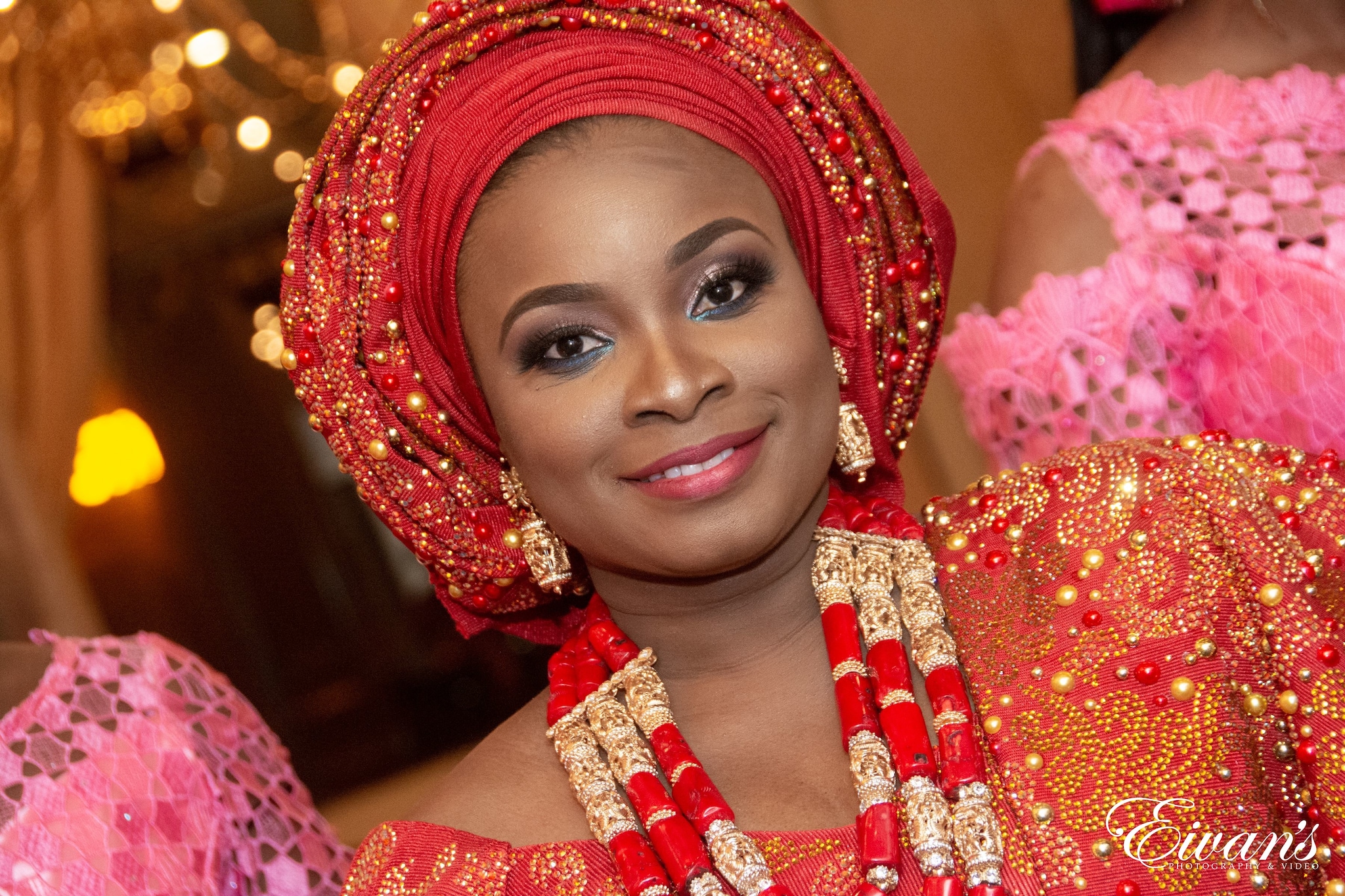Diverse Nigerian Wedding Traditions and Customs
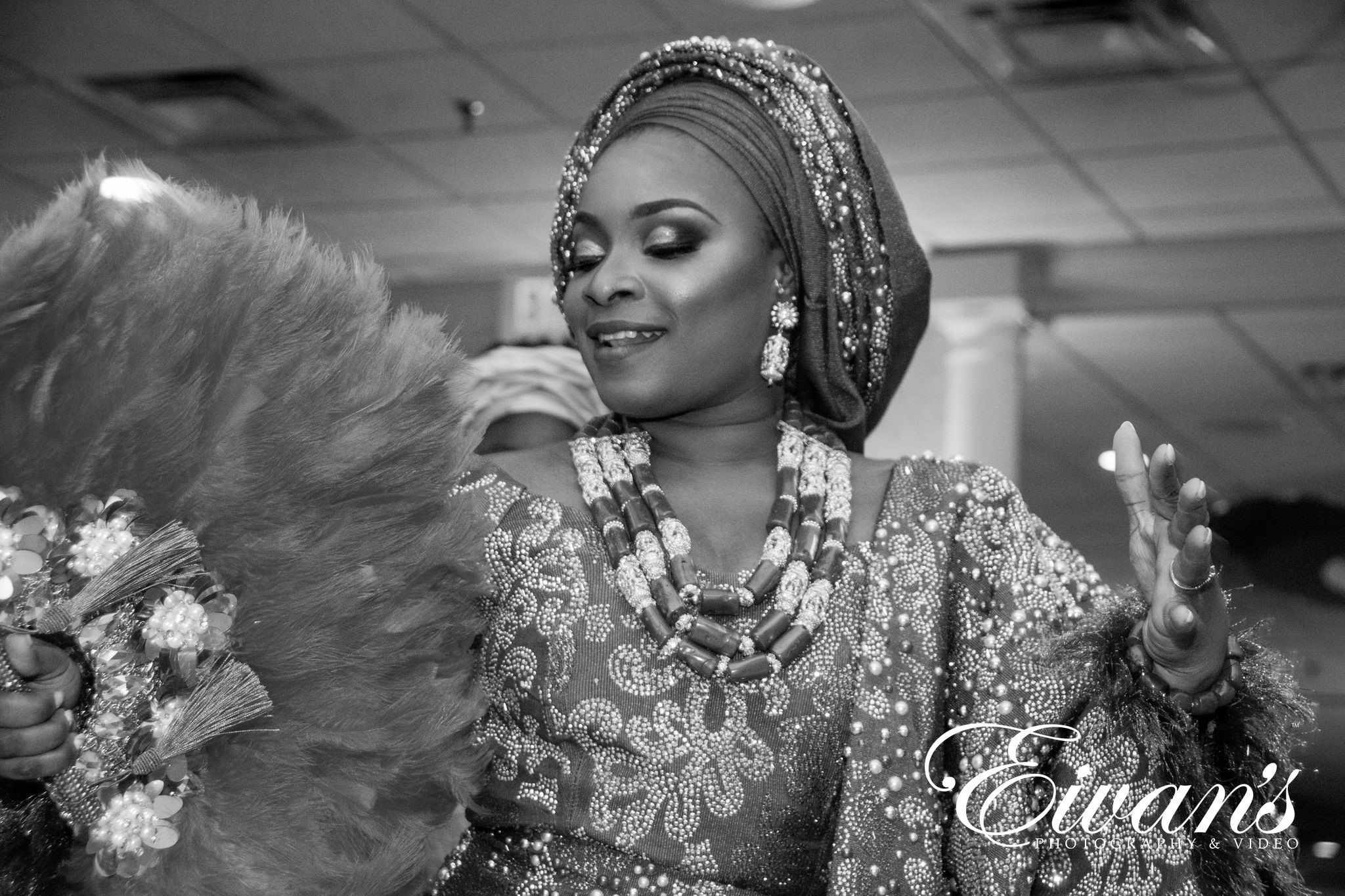
By Eivan’s Wedding Team ![]()
Forget guest lists, Nigerian Weddings have always been open invites. They are large and lively events where the whole town enjoys feasting and dancing. Now that’s a typical Nigerian wedding! In the 21st Century, slight changes in Nigerian weddings have occurred. Most religious and cultural wedding celebrations have become modernized.
Though modern, the traditional wedding customs are still relevant. There are about 300 ethnic groups in Nigeria each with their own wedding traditions. The biggest tribes being Yoruba, Housa, Igbo and Ijaw enjoy their rich customs.
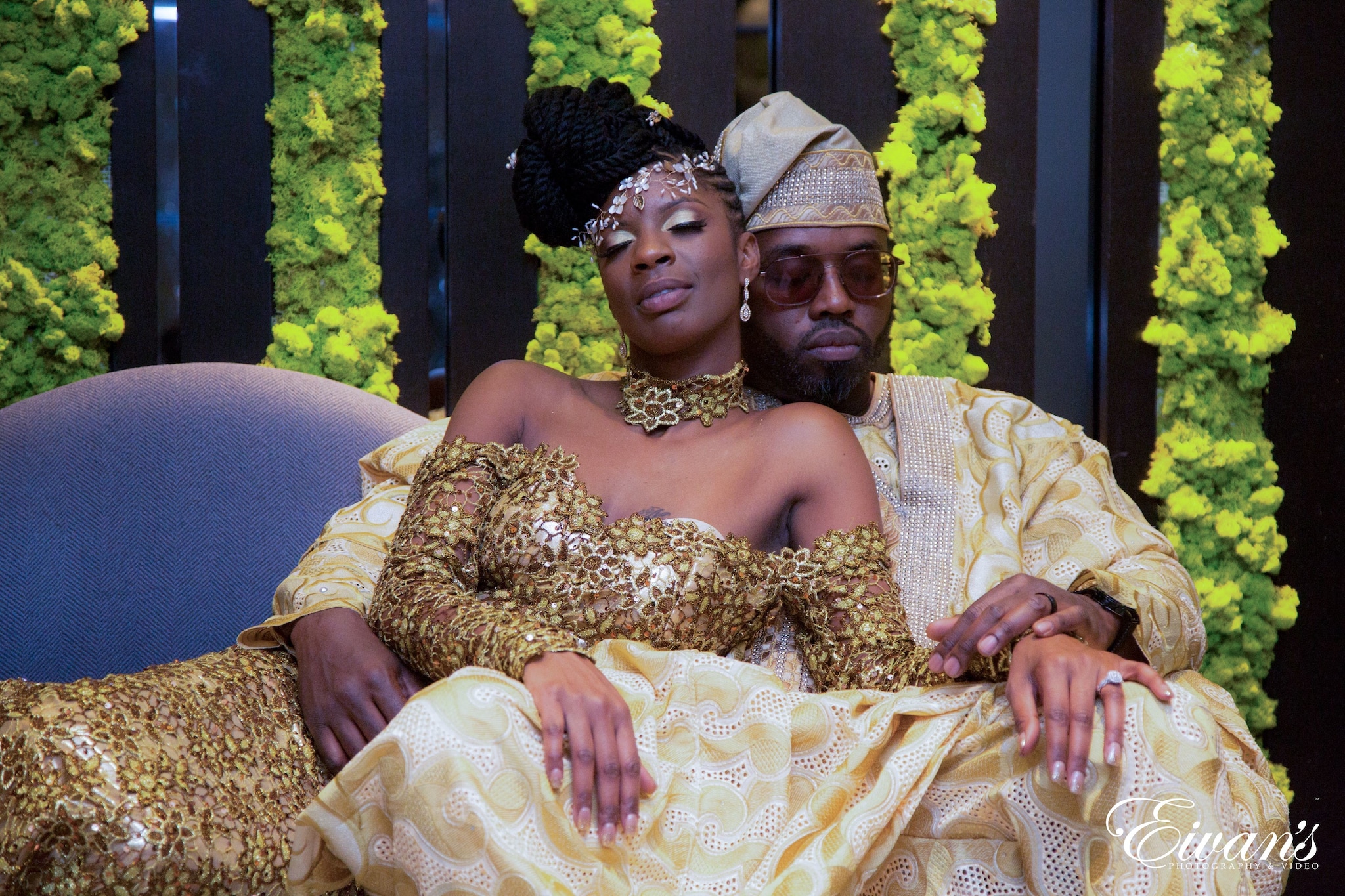
Let’s take a look at what Nigerian Wedding Traditions entail
Family introductions
Nigerian wedding preparations kick off with formal introduction of the family members. In this first meeting both families exchange gifts. In Igbo tribe, the potential groom’s family receives a dowry list from the bride’s family.
The groom must fulfill them before they allow him to marry the girl. The list varies from tribe to tribe or family’s culture. The bride price becomes more expensive if she holds a degree or doctorate.
According to the traditional Igbo wedding customs, the dowry determines if the groom is ready to marry or not. The women from the bride’s family receive the required bridal gifts and give the final answer to the men.
Dowry in Nigeria is expensive; many grooms who cannot afford it have to end the relationship. Wedding planning begins immediately the full bride price is paid. This still happens in a modern wedding.
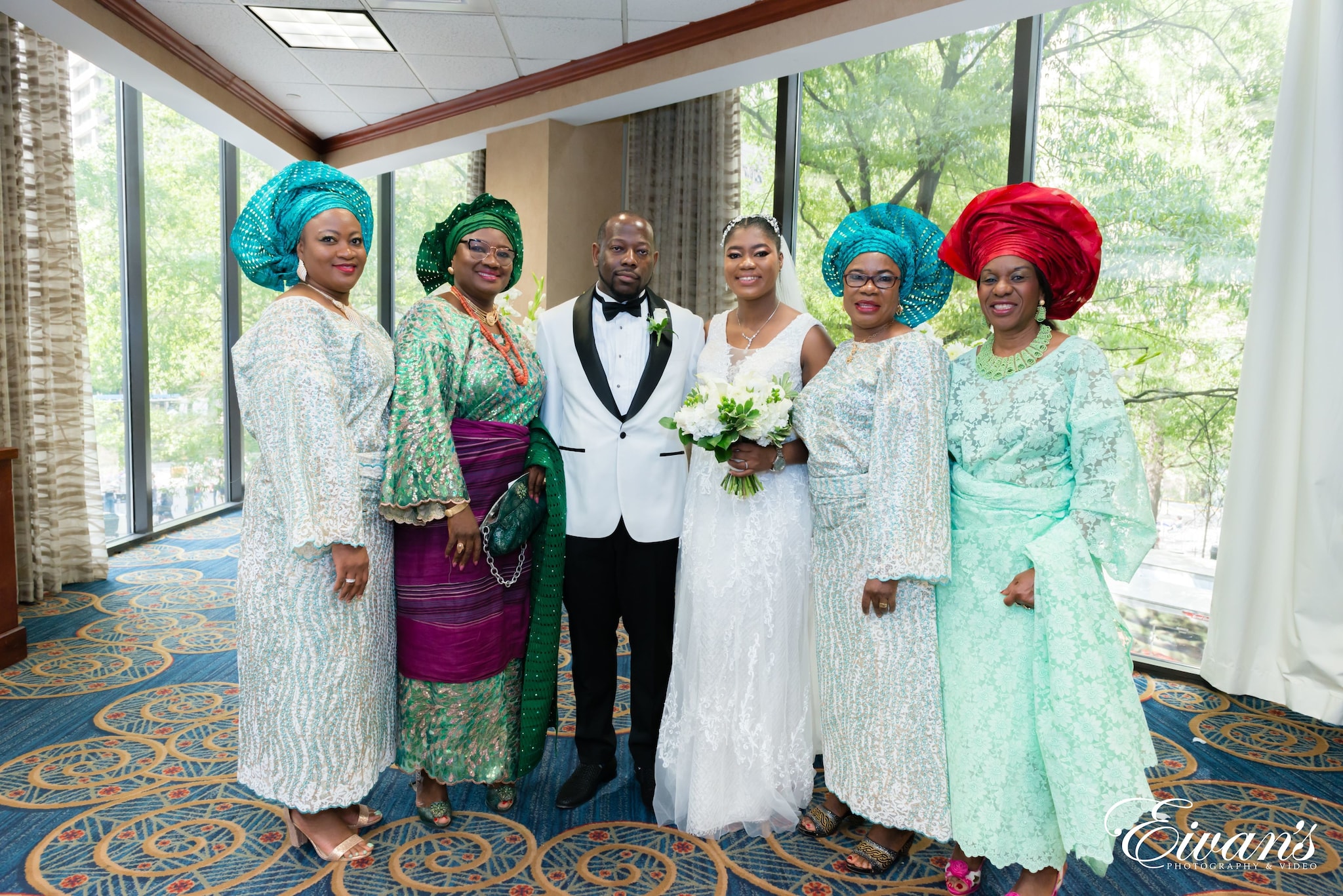
Older siblings
Nigerian marriage traditions require that an older sibling marry before the younger one. For some tribes, this is for men only while others ladies are also part of it.
The younger siblings will postpone their weddings until their older siblings have married. Should they choose to proceed to marriage, they will not receive the family blessing which is paramount in this culture. This culture is partly followed in today’s marriages.
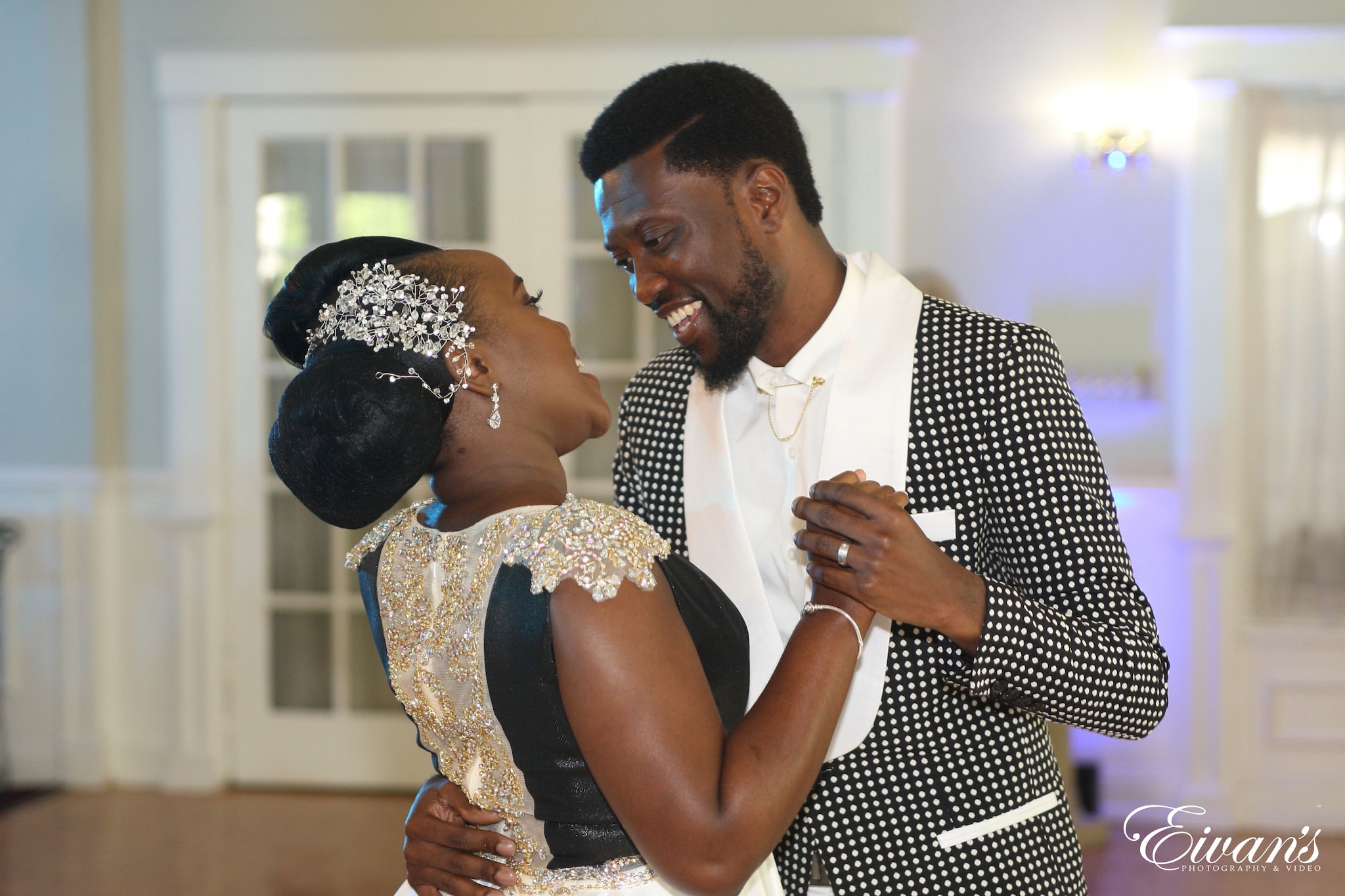
Testing the groom’s endurance
Hausa and Fulani tribes test the man’s courage and endurance by lashing them….. Weird! The groom receives 100 lashes before they can claim their bride to prove their love for them.
If the man winces, cries or shows any signs of pain, the wedding does not go on. The lashing no longer happens in today’s weddings unless it’s happening deep in the village.
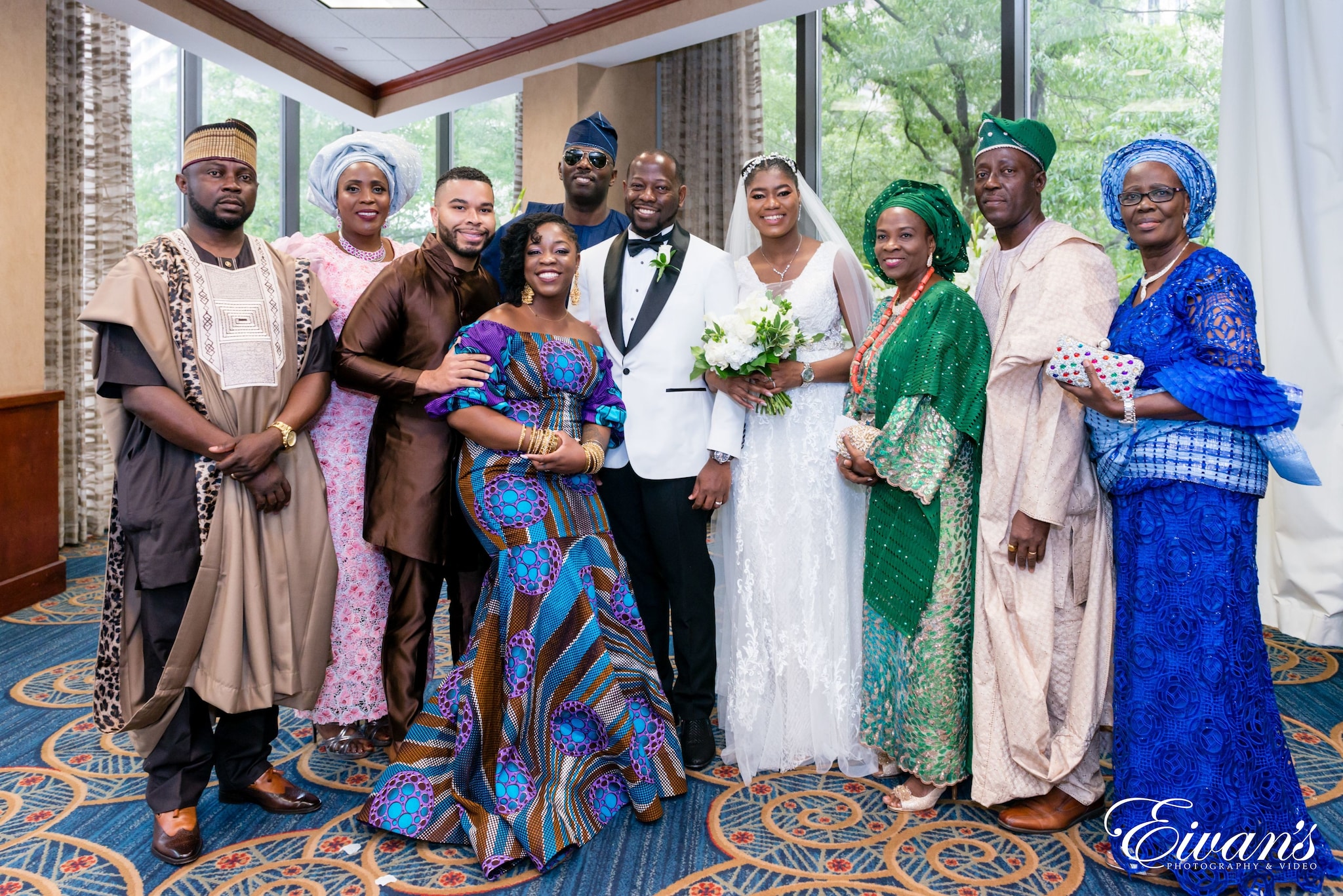
Showing respect
Yoruba traditions demand that the groom and his friends lie prostrate on the ground. This is to show respect to the bride’s family.
They perform this ritual four times during the traditional wedding ceremony. Today, they do not lie prostrate they bend as a sign of respect.
Color coordinated outfits
In the whole of Africa, Nigeria and Ghana are the best when it comes to wedding outfits. The ritual of family wedding clothes is Asoebi.
The bride and groom chooses the fabric and color of the wedding clothes. These are for their family members, bridesmaids and groomsmen. It is easy to distinguish the guests from different sides on the wedding day.
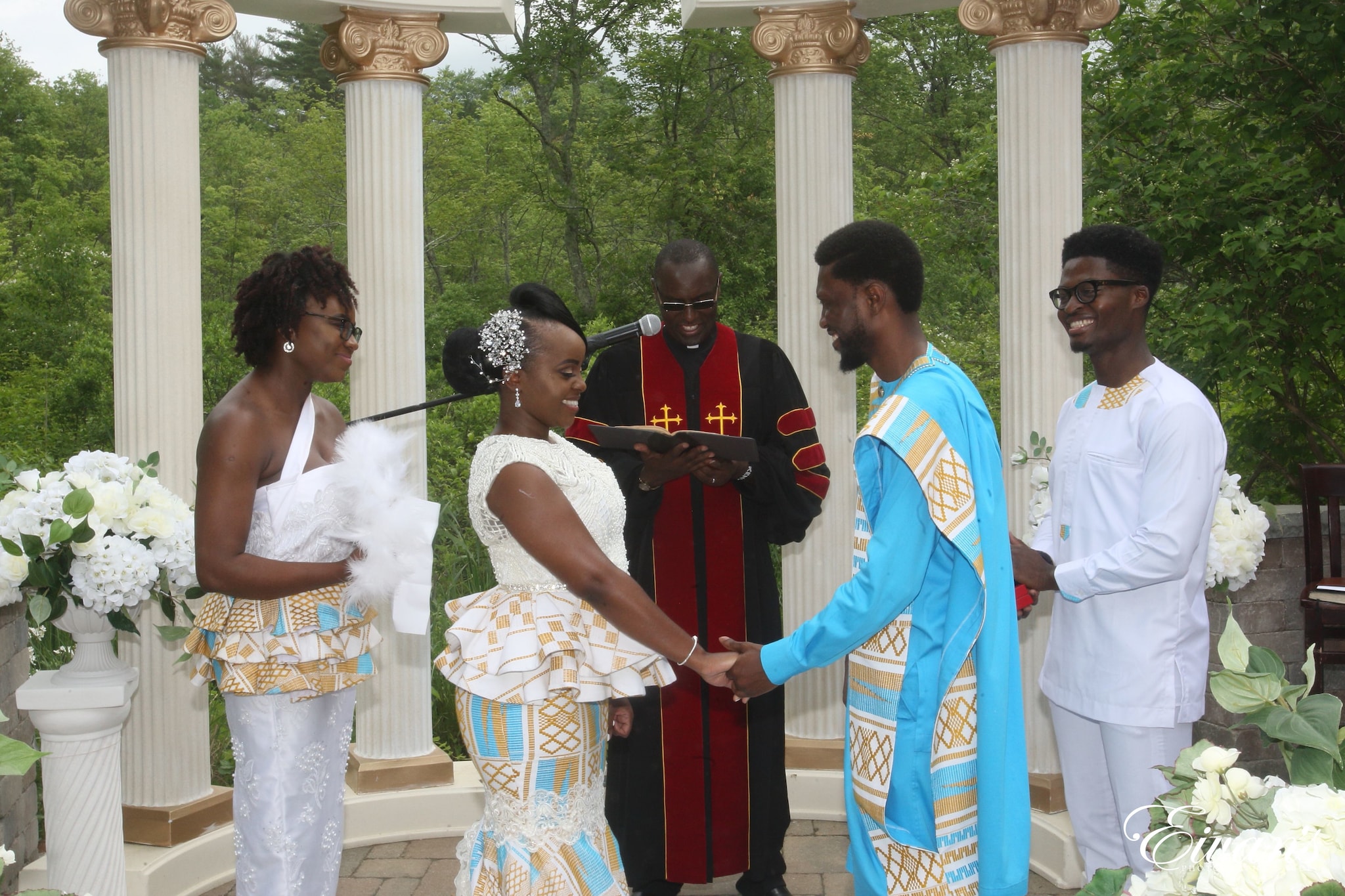
The wedding ceremony
Nigerian couples have two weddings, twice the fun! A traditional Nigerian wedding is the first one followed by the religious ceremony. Both ceremonies are days or weeks apart.
The bridal party wear their color coordinated outfits. The traditional Igbo tribe wedding attire for a Nigerian bride is special. It includes a lace blouse, bright kaftan like skirt matching coral beads and head tie for the bride.
Brides wear bold and bright colored makeup and accessories to brighten them for the big day. The couple wears traditional wedding attires for their cultural weddings.
The religious wedding is a normal white wedding in a white dress. The couple adorns the Western countries attires – a white wedding dress for the bride and a suit for the groom. Modern couples opt to adorn their traditional attires for the religious weddings.
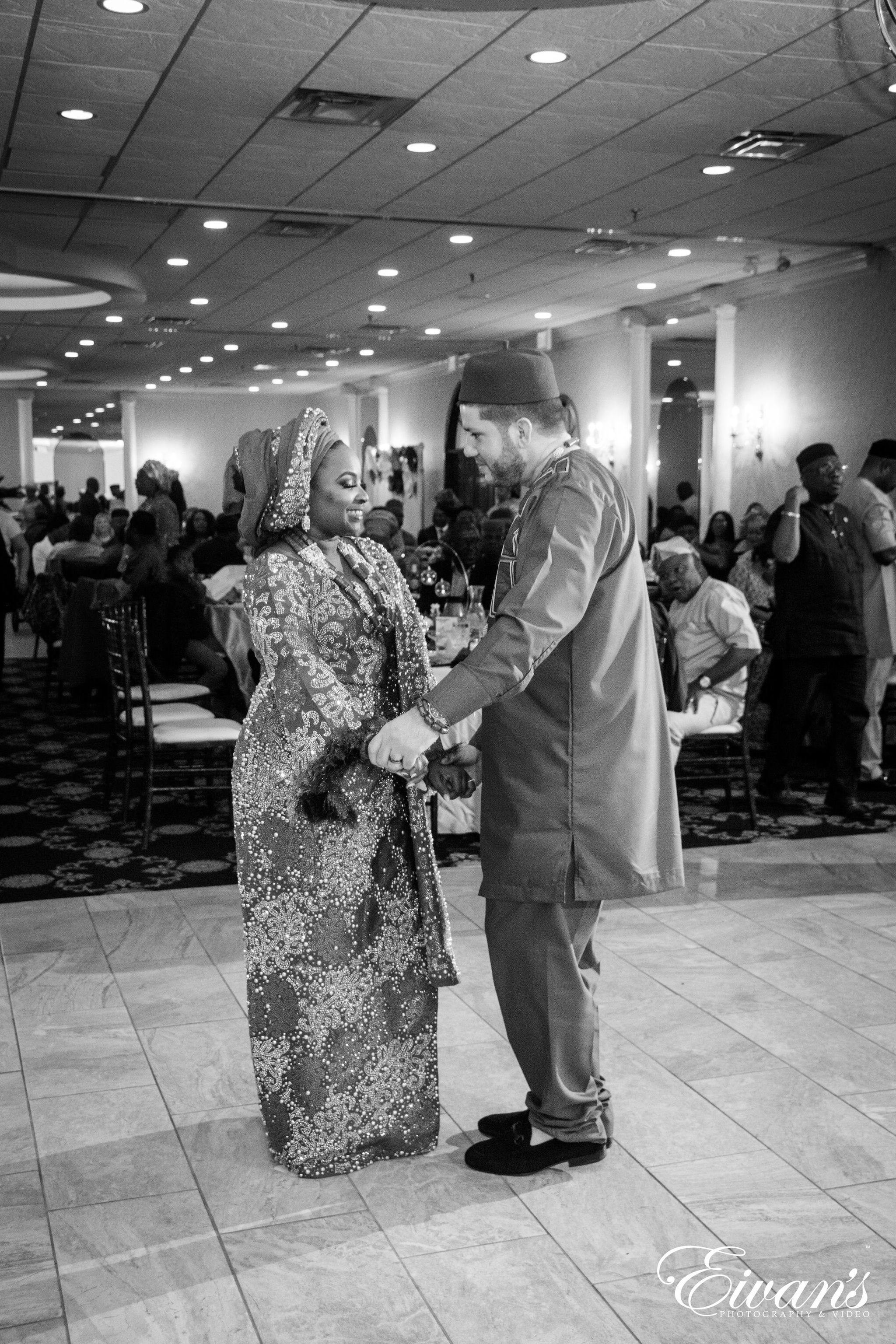
After the vows
The newlyweds move to the dance floor for their first dance. Tradition requires the groom to carry his bride to the dance floor to show his strength to take care of her.
The money rain
As the newlyweds dance, the guests join them and begin to rain money on the bride. This is a long standing wide spread culture that is still popular in today’s weddings.
The bridesmaids collect the money for safekeeping handing it to the couple later. Nigerian wedding traditions view weddings as lively events. Dances are common with some like Azonto, kukere and skelewu being the most popular ones.
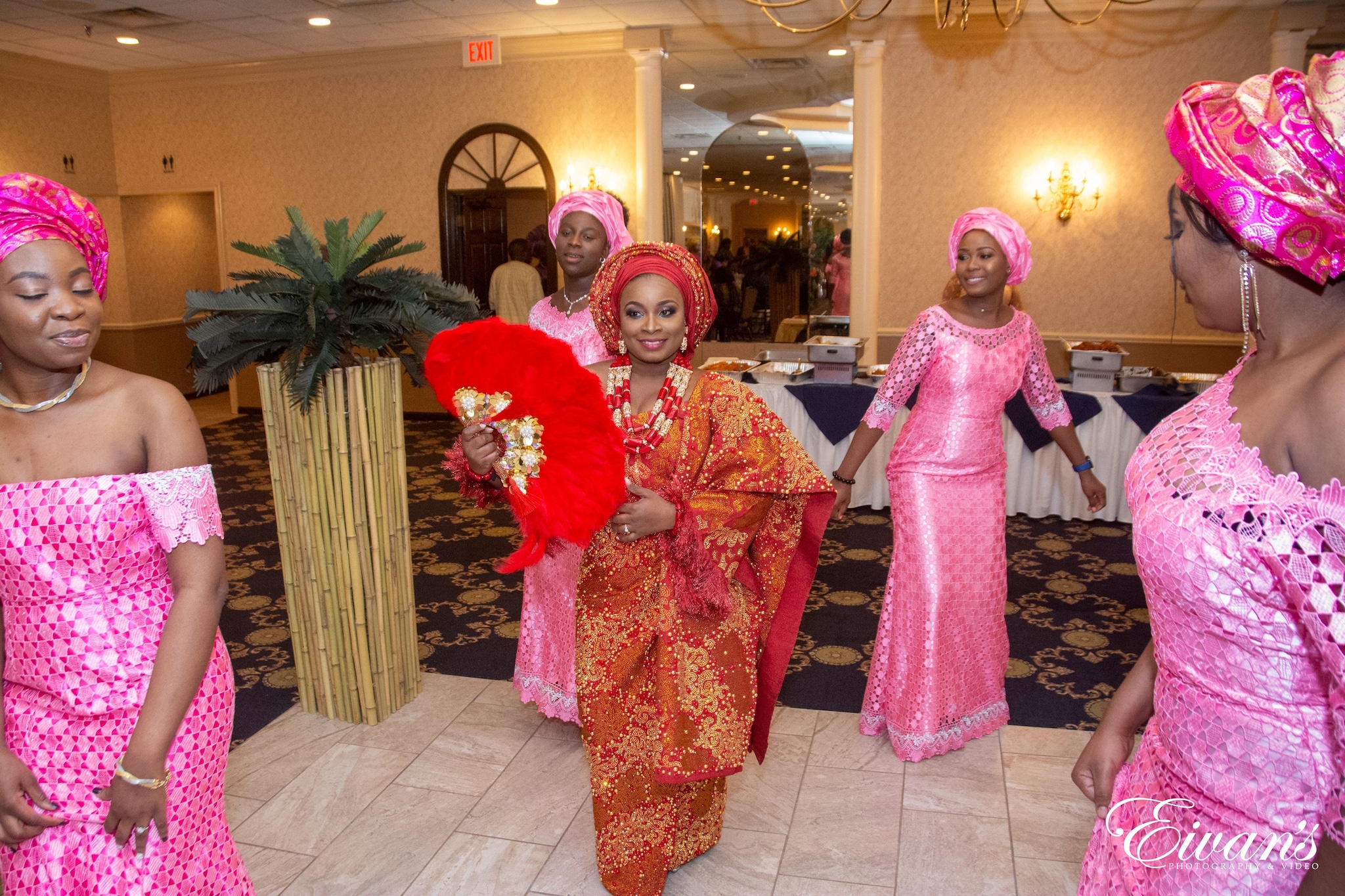
The wedding reception
Food is a love language to the Nigerians. Food also symbolizes their connection to one another. Plenty of different cuisines both traditional like pounded yam and modern international delicacies are available.
Remember these weddings do not have a guest list, so there is plenty of food as well for hundreds of people present. Drinks are also available with their favorite palm wine present throughout the ceremony.
The wedding party goes into the night with guests enjoying food, drinks and music non-stop. The wealthy families are known to give the best parties. Modern weddings are hiring a DJ to keep the guests ell entertained.
Nigerian wedding traditions are a big deal; they are full of fun and food that doesn’t seem to run out. Their culture is well preserved though the ages and with a little touch of modern stands out over the top.
